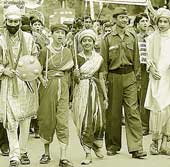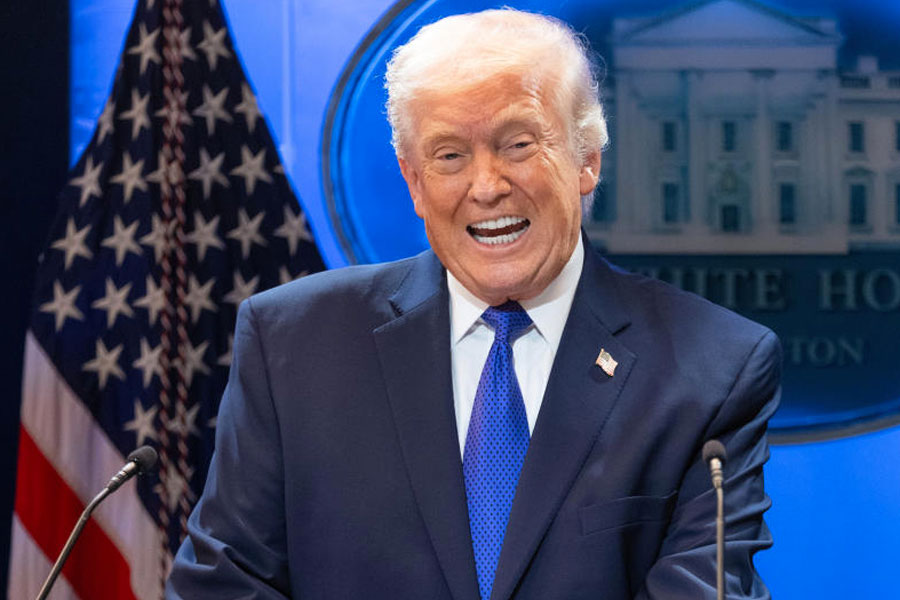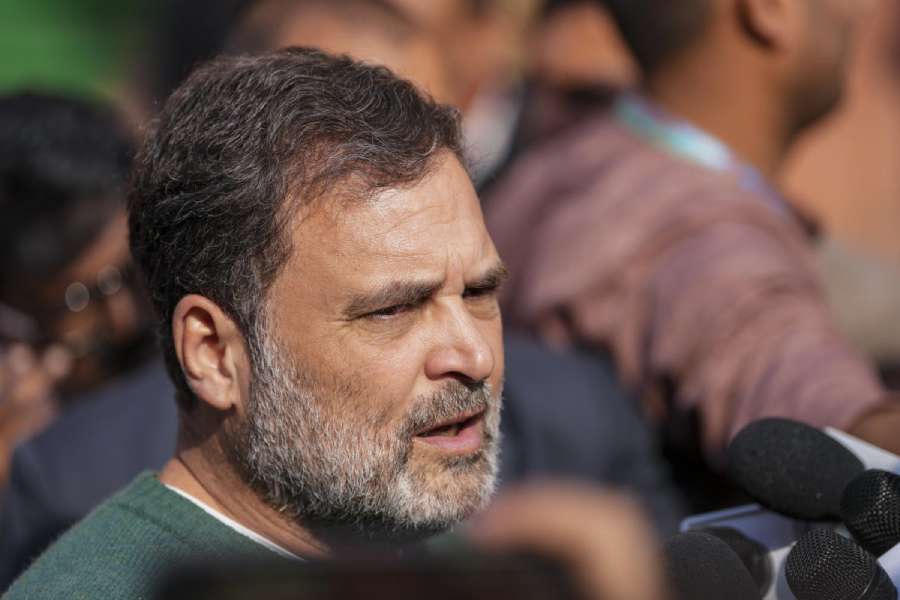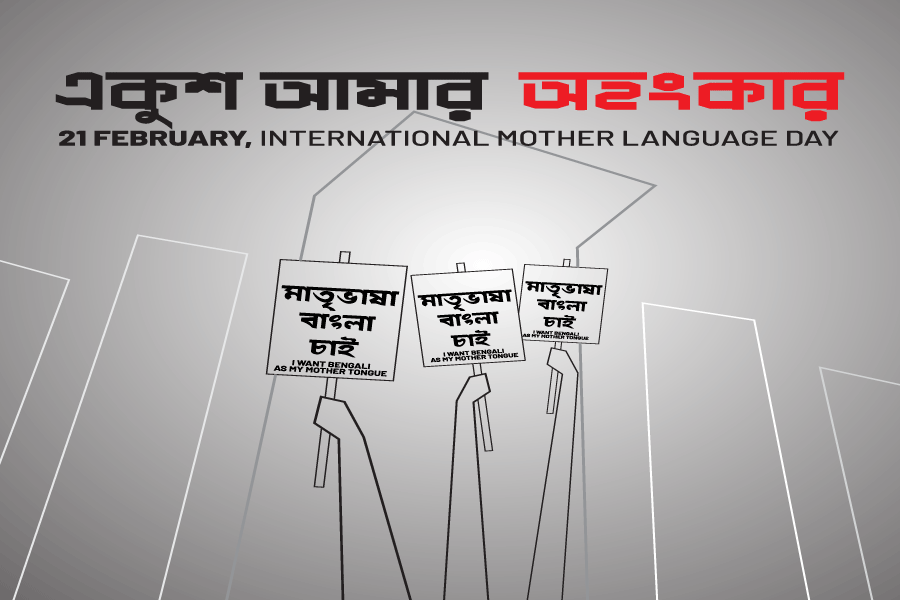|
|
| Diverse in our unities |
The author is professor of philosophy and of law and governance, Jawaharlal Nehru University
I recently had occasion to reread V.D. Savarkar’s little book, Hindutva. I had always thought that its conception of the Indian nation was singularly unappealing and untenable, and liable to produce all kinds of adverse consequences for India’s pluralism and its minorities that we associate with Hindutva politics. Yet many well-meaning citizens were attracted to it, and in some ways, the book provides the politically most potent articulation of Hindu anxieties to dominate the Indian political scene.
Why is the book so successful? To understand its appeal, play a little game. Ask the question, What is India? Think of the range of answers on offer. Some argue that India is a civilization. But this argument seems a non-starter because it invites the further questions: What makes this civilization distinctive? What binds the adherents of this civilization together? Suppose you argue, as many prominent nationalists did, that India is a composite culture, a complex tapestry woven from many different strands. Again, you will invite a further question: What do members of this composite culture share that makes India a nation? What would be a test of their mutual identification?
So what might be the basis of commonality amongst Indians? Language cannot be the answer. Shared culture cannot be the answer, because we would have to specify what exactly we shared and why we ought to identify with that aspect of our culture more than others. Religion cannot be the answer, not simply because India has many religions. Even Hinduism, as Savarkar shrewdly pointed out, is internally diverse. He argues that Hinduism cannot be identified with a set of social practices that all share; it cannot be delineated with reference to a set of shared beliefs. Indeed, he argues, even those who believe in sanatana dharma are only a small subset of Hinduism. You might argue that all those who inhabit this territory are Indians. But that only invites the question, Who deserves to inhabit this territory?
What about common political institutions? We seldom had them. What about a sense of shared history? But history is shared only to the extent of interpretations that we put upon it. And often our beliefs about history are a function of our identity, not the other way round. We choose a shared history because we identify and sympathize with each other, history is not the ground of our mutual sympathy. If we have a common identity, we will construct a shared history.
This is the bluff that Savarkar calls so effectively. We must be, Savarkar argues, a nation because only as a nation will we be entitled to respect, and only as a nation will we produce the collective endeavour history requires of us. But what makes us a nation? What is it that we share? Remember, whatever we have to share has to be something that is beyond shared belief, social practices, culture, common political institutions and a common history. It must be something that exists over and above all the divisions that we suffer from along these lines, something that is more enduring than our political vicissitudes and cultural and religious differences.
What could that be? It is in this context that Savarkar invokes the trope of blood, of common kinship. Surely a sort of common racial descent unites us; whatever our other differences, we are united by a common blood. Savarkar is looking for a way of giving India an identity that can encompass all other differences. His answer is that being Indian means essentially possessing a common ethnicity, which he names as Hindutva. This is what all of us have in common, including Muslims and Christians. The appeal of the trope of race or blood, or even common values that monumentally hover over us, overcoming all other differences is this: it seems to be the only way of answering the question, “Who is an Indian?”.
Of course, the trouble is that for Savarkar many communities such as the Muslims do not acknowledge who they really are. Rather than giving moral priority and their highest allegiance to who they are, they worship gods from outside India; rather than acknowledging their common descent they seek to differentiate themselves.
Many find Savarkar’s arguments appealing because it seems to be the only plausible answer to the question, What is India? Notice also the second thing that Savarkar does. He benchmarks Indian identity. To be an Indian is not to worship a god outside India and so forth.
There are two lessons to be drawn from reading Savarkar. Take the very question, What is India? This is a trap. It does not admit of a natural answer. It only exposes the fragility of any conception of identity. It will lead inevitably to a contest over an authoritative definition, which will be decided by those who have most power. Second, any process of creating an identity will lead to creating identity’s Other. Indeed, the difficulty for most minorities in India at the current conjuncture is that their otherness is over-determined. If we say that Indian identity is constituted by fidelity to a religion, they are excluded. If we say, as Savarkar did, that Indian identity is constituted by belonging to a single race, those who do not acknowledge that fact are excluded. If we say Indian identity is constituted by some values, say tolerance, then some are marked out for supposedly not exemplifying those values.
In short, every attempt to benchmark Indian identity, define it in terms of litmus tests, will produce mischief. I suspect Hindutva cannot be matched simply by counter-posing some other conception of Indian identity. The problem is not simply Hindutva; Hindutva is made possible by a prior obsession with identity. Rather the trick is to resist the allure of the identity-question altogether.
Politically, what India needs is not so much a new conception of Indian identity, one that emphasizes pluralism and compositeness. Rather, what we need is a social contract over how we respect and deal with those with whom we disagree about India’s identity. We don’t need to ask, What do we share? Rather we need to ask, What are the terms on which we relate to those with whom we disagree about what we share or with whom we share nothing at all? The challenge is not to find something we share, the challenge is to find ways of acknowledging difference.
Does all this mean that India does not have an identity? If this demand implies that there is something we all unequivocally share, the answer is no. But it does not preclude the thought that we all have lots of different reasons and ways in which we define our relationships to one another. There is no “unity” in diversity, rather we are diverse in our unities, and we might identify with connections to India, each in our own way. But any attempt to produce an authoritative conception of India will be fraught with exclusion and violence. We should take some heart from the fact that usually it does not occur to anybody to doubt whether India has an identity, until someone begins to give arguments to prove it.











